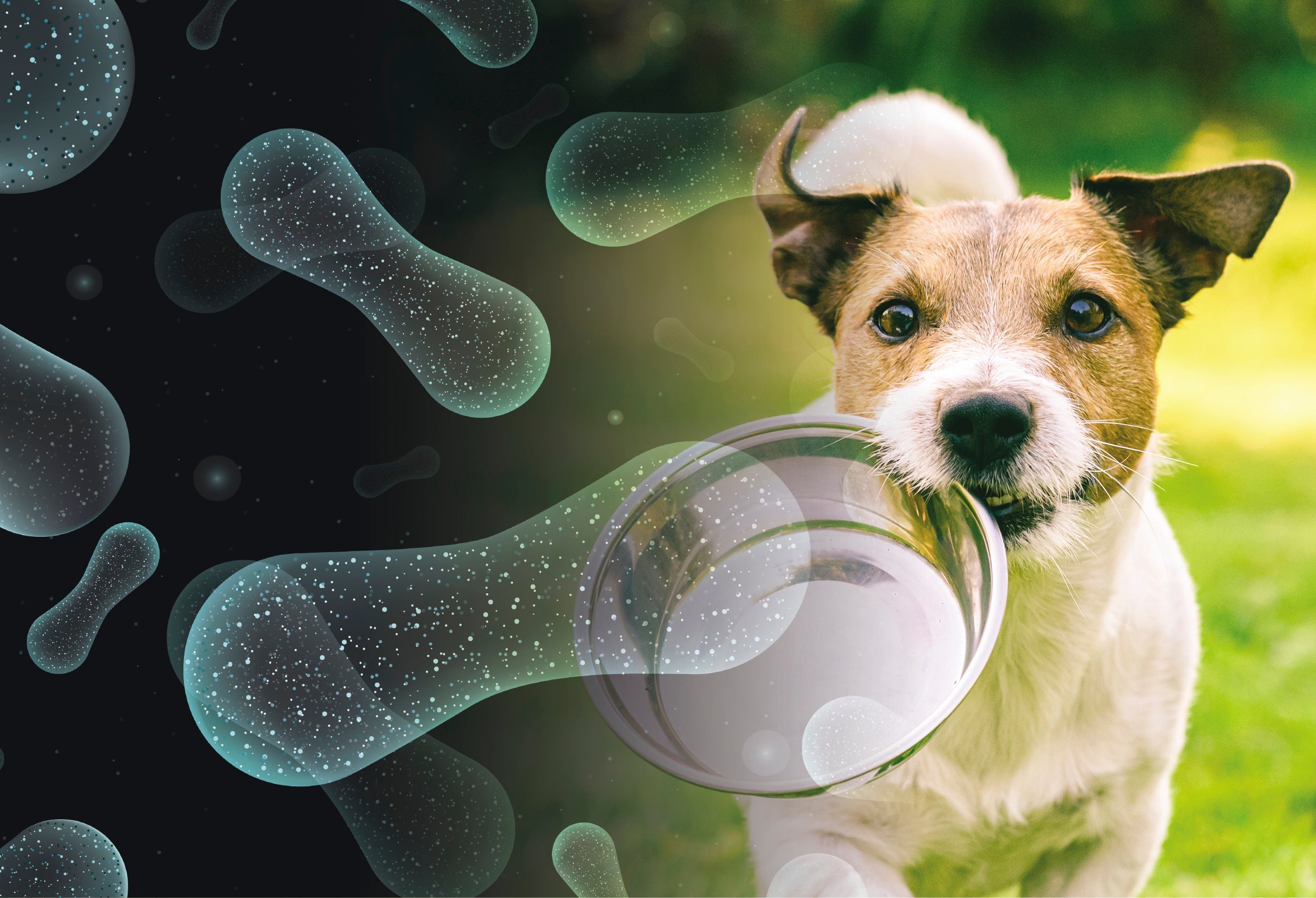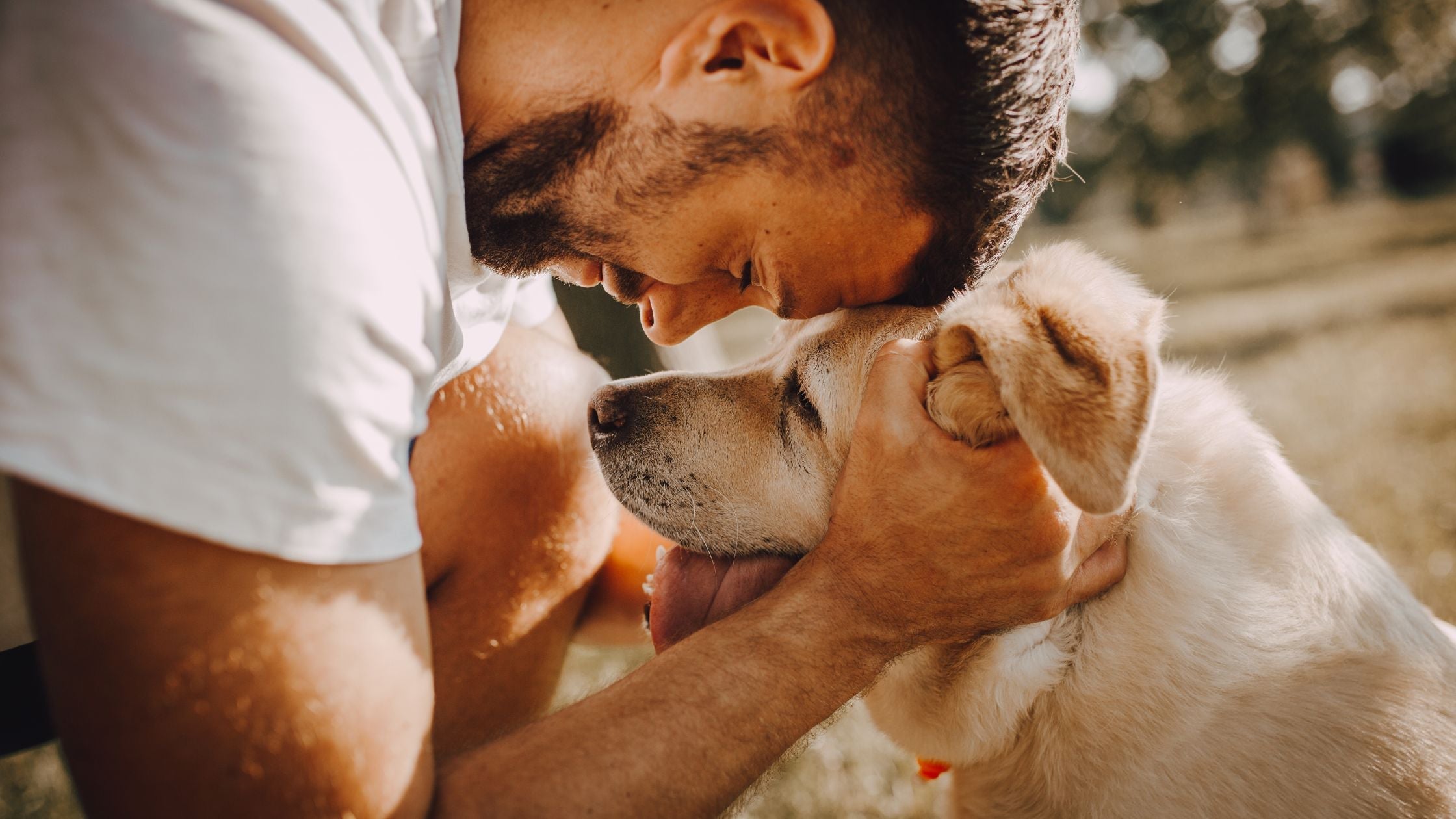The Role of Love and Companionship in Pet Health: The Human-Pet Bond
Explore the profound bond between humans and their pets for a heartwarming journey into their mutual health benefits. From emotional stability to physical well-being, discover the incredible ways your furry friend enhances your life and vice-versa. Uncover the rich history of the human-pet connection and its vital role in our fast-paced world.
Throughout human existence, few relationships have been as profound and heartwarming as the bond between humans and their pets. Whether it's the gentle purr of a cat or the excited wag of a dog's tail, the connection between humans and their animal companions is a source of immeasurable joy and well-being.
If you have a furry friend that has stolen your heart, here are just some of the ways the friendship you share is beneficial for their emotional and physical health, and yours!
The Evolution of the Human-Pet Bond
The history of humans and pets is a tale as old as time. Approximately 15,000 years ago, humans started domesticating animals for practical purposes such as hunting, herding, and protection. However, the relationship evolved into something far more intricate and emotional. Today, pets have become integral members of our families, providing unconditional love, companionship, and a unique form of solace in our fast-paced lives.
The best part is our four-legged friends also benefit from the relationship in several heartwarming ways.
10 Reasons the Human-Pet Bond is Beneficial to Your Furry Friend’s Health
1. Emotional Well-Being
- Unconditional Love: Pets receive love and affection without judgment, creating a sense of security and emotional stability.
- Reduced Anxiety: Human companionship can help alleviate anxiety in pets, especially in normally stressful situations.
2. Physical Well-Being
- Regular Exercise: Dogs, in particular, benefit from regular walks and play, promoting cardiovascular health and maintaining a healthy weight.
- Health Monitoring: Close interaction with humans allows for early detection of health issues since owners can notice changes in behavior, appetite, or physical condition.
3. Mental Stimulation
- Interactive Play: Engaging in play with toys or through games with humans stimulates a pet's mental faculties, preventing boredom and promoting cognitive health.
- Training Sessions: Learning commands and tricks during training sessions enhances a pet's mental agility and responsiveness all while strengthening the relationship between the both of you.
4. Routine and Structure
- Predictable Schedule: Most pets thrive on routine, and the structure provided by daily activities, such as feeding and walks, contributes to their overall well-being.
- Consistent Environment: The stability offered by a loving and consistent environment can reduce stress and provide a sense of security for pets.
5. Social Interaction
- Bonding Opportunities: Interaction with humans fulfills a pet's social needs, which can prevent feelings of loneliness and promote positive behavior.
- Exposure to Other Pets and People: The companionship of humans exposes pets to diverse social situations, contributing to their socialization skills.
6. Grooming and Hygiene
- Regular Grooming: Dogs benefit from regular grooming sessions, maintaining their coat health and overall cleanliness. Cats may also benefit from the occasional grooming session despite the fact they are impeccable self-cleaners.
- Dental Care: Regular brushing and dental care provided by a pet’s humans contributes to their oral health.
7. Nutritional Care
- Balanced Diet: Responsible pet ownership involves providing a well-balanced and nutritious diet tailored to a pet's specific needs, ensuring optimal health. This includes determining whether they would benefit from additional nutrients provided by pet supplements.
- Monitoring Dietary Changes: Humans can observe and adjust a pet's diet based on any changes in appetite, weight, or health conditions.
8. Safety and Protection
- Providing Shelter: Humans offer a safe and secure home environment, protecting pets from the elements and potential dangers.
- Medical Care: Responsible owners ensure pets receive necessary veterinary care, vaccinations, and treatments, contributing to their overall health, longevity, and quality of life.
-
9. Comfort and Security
- Comfort in Familiarity: The presence of the humans they love provides a familiar and comforting environment for pets, reducing stress and anxiety.
- Security in a Pack: Many pets, especially dogs, have an inherent sense of being part of a pack when living with humans, which can contribute to their sense of security and overall happiness.
-
10. Tailored Attention
- Individualized Care: Understanding a pet's specific needs, preferences, and health conditions allows their humans to provide personalized care and attention.
- Bonding Time: Spending quality time together, whether through play, walks, or simply relaxing, strengthens the bond between pets and their human companions.
How Your Relationship With Your Pet Makes YOU Healthier
Emotional Well-Being: A Two-Way Street
Anyone who has truly loved a pet knows it is an emotional connection that defies conventional explanation. The mere presence of our beloved pets has a remarkable impact on our emotional well-being.
Studies consistently show that interacting with pets releases oxytocin, the hormone associated with bonding and affection, in both humans and animals. This hormonal surge has contributed to reduced stress levels, lowered blood pressure, and an overall sense of well-being.
Conversely, pets are incredibly attuned to their human companions' emotions. They have an uncanny ability to sense mood changes, offering comfort during difficult times and celebration during moments of joy. The reciprocal nature of this emotional exchange fosters a supportive environment, reducing feelings of loneliness and promoting mental resilience.
Physical Health Benefits
Not only is a positive relationship with your pet good for your emotional well-being, but it can also trigger improvements in your physical health.
One of the most evident benefits is increased physical activity. Dog owners, in particular, often find themselves engaged in regular walks, runs, and outdoor activities, promoting cardiovascular health and overall fitness. The companionship of a pet encourages a more active lifestyle, reducing the risk of obesity and related health issues.
Plus, petting and grooming animals has been linked to lower cortisol levels, the hormone associated with stress. The rhythmic motion of stroking a cat or dog may induce a calming effect, contributing to relaxation and mental clarity.
These small yet precious moments of interaction can become rituals of well-being, forging a deeper connection between humans and their pets.
Companionship for the Elderly and Isolated
For the elderly or those living alone, the companionship of pets can be a lifeline. Routine care and interaction with a pet can provide a sense of purpose and structure, reducing feelings of loneliness and depression. It might also create a rhythm that brings joy and fulfillment to those who may otherwise feel lonely.
A Source of Unconditional Love
Perhaps one of the most remarkable aspects of the human-pet bond is the unconditional love that flows between them. Pets, devoid of judgment or expectations, offer a unique form of companionship that is both pure and unwavering.
Join Our Family to Get the Best Pet Health Tips and Exclusive Discounts on Pet Supplements
If you believe your pet deserves only the best, you’re in the right place. Join the Fera family by subscribing to our newsletter and you’ll receive our best pet health tips from our blog, exclusive deals on our natural pet supplements for dogs and cats, and more.
Sources:




